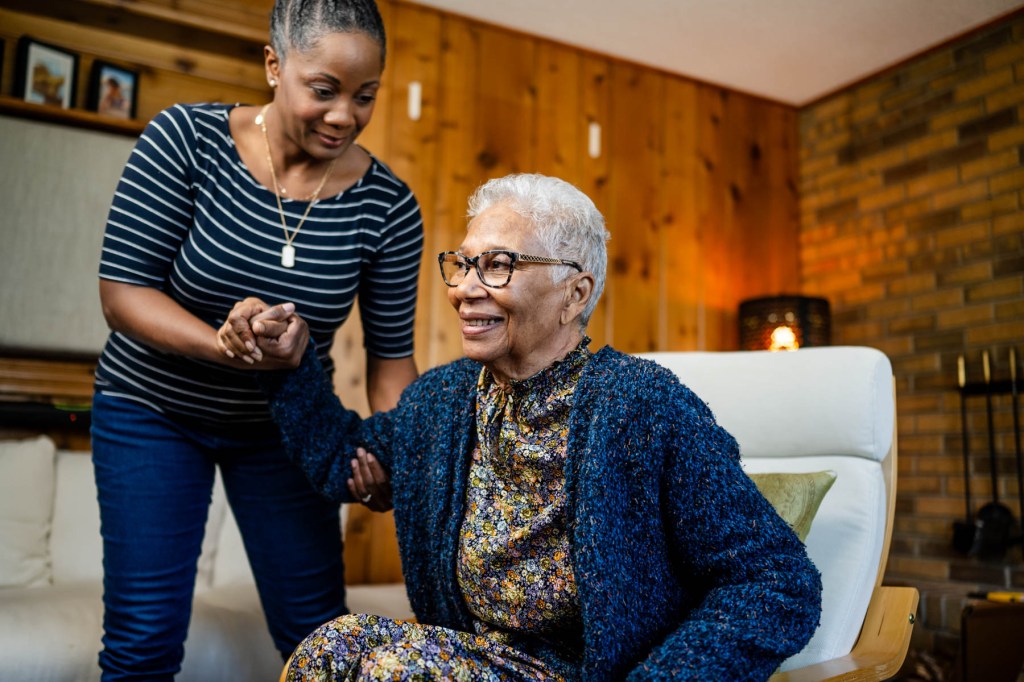
What Is a Family Caregiver?
Caregivers, often family members, are the people who regularly provide care for a child or adult who is sick, elderly, or has a disability. Family caregivers take care of their loved ones every day. They help with daily tasks, providing emotional support, and assist with whatever their loved one may need.
“Many people who care for a loved one do not even identify as a caregiver. They just think they are doing what any family member would do,” says Jasmine Ohler, Care Management Lead at Careforth. “It’s important that we help them see that what they do is above and beyond. Family caregivers need to be recognized, supported and shown gratitude.”
Family Caregiver Responsibilities
If you or your loved one are new to caregiving, you may be wondering, “What do family caregivers do?”
Family caregivers are responsible for the physical, emotional, and social wellbeing of their loved one. Caregiving can involve a variety of tasks, unique to each situation. Despite many common experiences, caregivers’ roles are highly variable across the course of caregiving. Factors that influence the caregiving role include:
- Different types of families.
- When someone starts being a caregiver.
- How long they have been caregiving.
- Changes in how care is given over time.
When caring for someone daily, caregivers often are responsible for the following activities:
- Bathing, dressing, and grooming.
- Cooking, shopping, and housekeeping.
- Managing medications and appointments.
- Transportation and ambulation.
- Emotional support and social activity.
Family caregivers play a vital role in the healthcare system by enabling their loved ones to stay at home longer, leading to improved happiness and wellbeing. This not only reduces the strain on formal healthcare services but also fosters a sense of comfort and familiarity for the individuals receiving care.
Support and Resources for Family Caregivers
Although family caregivers provide valuable support, caregiving can often be overwhelming to take on by yourself. And, without the proper support and resources, caregivers may experience burnout and fatigue.
If you or someone you know is a family caregiver and serving as the primary caregiver, you may have additional resources and support available to you. Also, depending on your caregiving situation, the care you provide may qualify for financial assistance.
How Careforth Helps Caregivers
At Careforth, we provide you with an expert team that can include nurses, social workers, and coaches, so you can feel supported at every turn of your caregiving journey. Our team can also help you navigate the caregiving resources available to you, so you can confidently care for your loved one at home.
Visit the How We Help page on our site to learn more about how Careforth supports caregivers, or contact uscontact us for more information.
Family Caregiver FAQs
A family caregiver is someone who provides consistent care to a family member who is sick, elderly, or has a disability. The caregiver may provide emotional support, physically assist with activities of daily living (ADLs), manage medications, coordinate recreational activities, provide transportation, and more.
Family caregivers support emotional, social, and physical tasks associated with their loved one’s daily life. Often, their role includes helping with household chores like cooking and shopping, as well as assisting with bathing and grooming activities for their loved one.
Caregiving includes a variety of tasks that enable loved ones to receive care in the comfort of their homes and extend their quality of life. Helping a loved one with bathroom needs, cooking and cleaning in the home, and administering medications are a few examples of family caregivers’ daily tasks.
Yes, individuals may be eligible for family caregiving compensation depending on the level of support they provide their loved one and where they live. Click here to learn more about eligibility requirements and available support.


